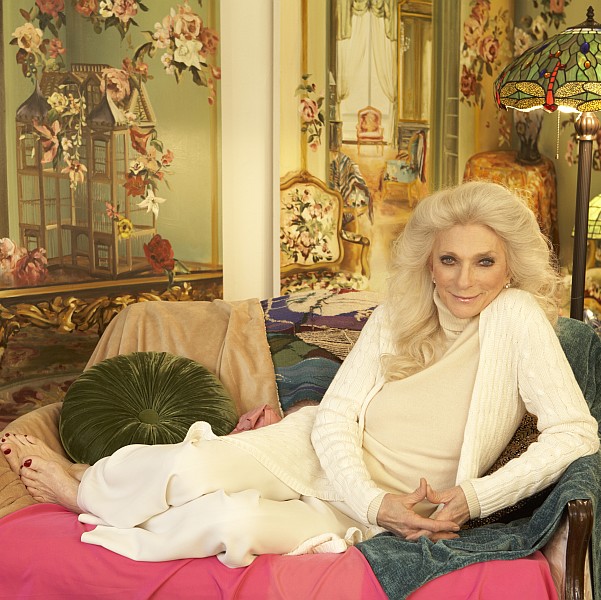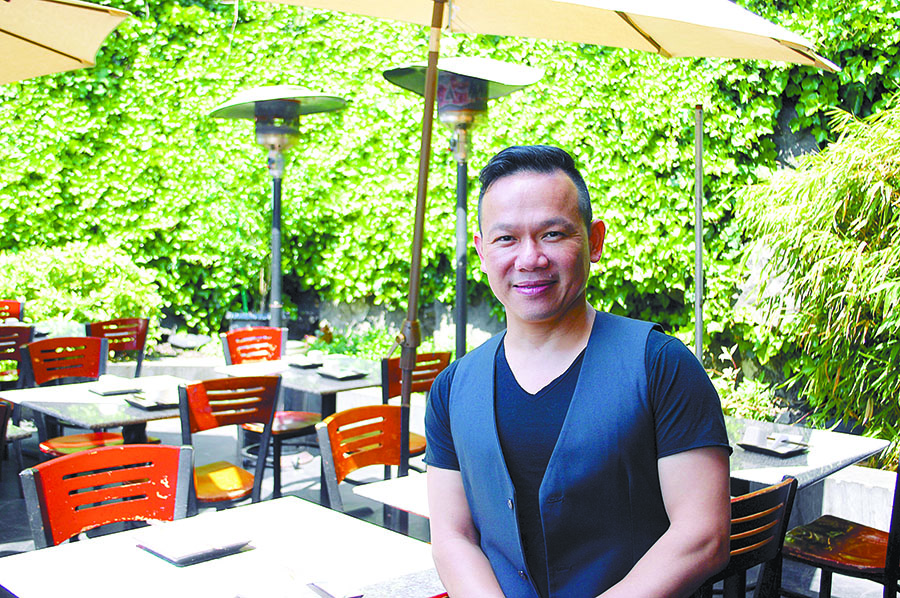Close your eyes and just listen to her. Pay no attention for a moment to the flowing white hair that rides down the back of her long dress, the color of purple heather. Listen to the stirring soprano sound, astonishing in its clarity and range, glinting like diamonds in bright moonlight. It is, unmistakeably, the voice of Judy Collins.
Hard to believe, but Collins is 75, though it matters not. She’s ageless, a folk icon, there from the beginning, this “wild angel of pop,” as New York Times critic Stephen Holden once described her, the unwavering liberal, a piano prodigy at 13, weened on the Irish ballads her blind father would sing, often in his cups, and the bold lyricism of Woody Guthrie and Pete Seeger. She’s still writing, recording, touring worldwide – and still dazzling audiences with her trademark songs that transport her gray-headed contemporaries back to the incandescent sixties.
On Monday evening at the Neptune, Collins, trim as a bird, stood before an intimate crowd of admirers, and let them feel for 90 minutes what Stephen Stills, whose heart she shattered, must have felt so many years when he wrote:
“Chestnut brown canary
Ruby-throated sparrow
Sing a song, don’t be long
Thrill me to the marrow.”
“I was born here, did you know that?” Collins begins. “And I’ve been doing this for 56 years.” And with a smile creasing her face, she mischievously confides, “It’s the second oldest profession.”
Collins is a gifted storyteller and clearly delights in engaging her audience with stories of a lifetime that has had its share of triumph: a 50-album body of work, Grammy Hall of Fame, lovers galore, nights spent in the Lincoln Bedroom during frequent visits with Bill and Hillary Clinton, her legacy recently honored with the album Born to Breed: A Tribute to Judy Collins that featured such artists as Arlo Guthrie, Leonard Cohen and Joan Baez.
There, too, has been a fair measure of sorrow and devastating loss, none greater than the death of her son, who took his life in 1992 at the age of 33 when he relapsed after seven years of sobriety. Collins, an alcoholic, as was her father, took her last drink 26 years ago.
“My family was dysfunctional, but it was fun,” she cracks. “If any of you didn’t grow up in a dysfunctional family, I want you to twitter me or Facebook me about it.” Later, alluding to her long struggle with the bottle, Collins deadpans, “If you remember the sixties, you weren’t there.”
Indeed, Collins has seen and lived “Both Sides Now,” and the enchanting rendition she delivers of Joni Mitchell’s landmark song – which Collins included in her platinum-selling Wildflowers (1967) album – has the crowd cheering, its appetite now whetted for more vintage Collins. Sweet Judy obliges with “Diamonds & Rust,” the hauntingly critical ode to Bob Dylan made famous by her old pal Joan Baez.
Though still a vital artist today, it is the reminiscent Collins that her audience most appreciates. And while her stories traverse the same territory, each rendering of the tale, year after year, seems new and freshly presented.
Collins recalls the giddy days the followed the Beatles’ invasion and how she became friendly with Linda Eastman, the woman who would become Linda McCartney. “She knew I was going out with Stephen Stills and remember Linda complained of all the groupies [that swirled around Paul & Co.] But she figured it out. She learned to play keyboards and never left his side.”
Without missing a beat, Collins launches into “Norwegian Wood.” Her voice soaring and beautiful, she sings: “I once had a girl, or should I say, she once had me She showed me her room, isn’t it good, Norwegian wood?
From there, Collins is rolling down memory lane, now to her early heady days in New York, the jingle-jangle streets aglow with poets and musicians. “It was 1964 and everyone was there,” she recounts. It was there, one fine evening, when she met a guy at a bar, dressed rather shabbily, she jokes, “even for the sixties.” Well, of course, it was Bob Dylan. And sometime that magical night, says Collins, she found herself on the bottom stair inside a mansion listening to “Bobby,” as she called him, working on “Mister Tambourine Man.”
Sandwiched between favorites like “Someday Soon, “My Father,” and “Sons Of,” Collins tossed in some unfamiliar numbers, including her own “In the Twilight,” a moving piano-based ballad written for her mother.”
The night ends, fittingly, with Collins, as her final encore, thrilling the theater and all within it with “Amazing Grace.” She takes a bow and the crowd stands and cheers, and cheers some more. She offers gracious kudos to the production crew.
“Thank you, she says, “for making me look and sound like Judy Collins.”








